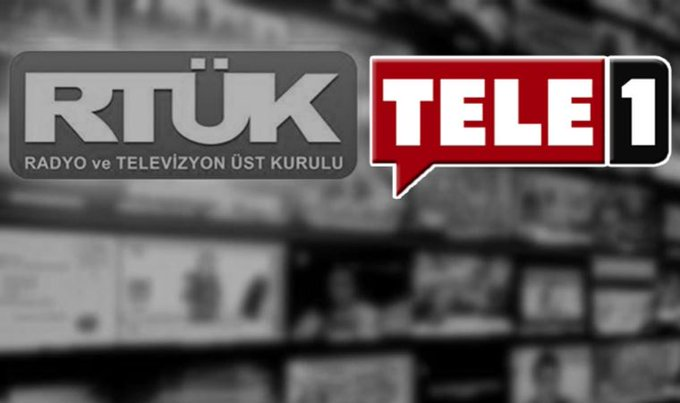Turkey’s broadcasting watchdog, the Radio and Television Supreme Council (RTÜK), has imposed a fine and a seven-day broadcasting ban on a TV station for remarks made by a journalist on air about a terrorist leader that also led to the journalist’s imprisonment, Turkish media outlets reported.
The station will pay 5 percent of last month’s advertising revenue as a fine, according to RTÜK’s decision.
RTÜK imposed the punishment on TELE1 due to the remarks of the station’s editor-in-chief, Merdan Yanardağ, regarding Abdullah Öcalan, the imprisoned leader of the outlawed Kurdistan Workers’ Party (PKK).
In a move that attracted widespread criticism from press organizations and rights groups, Yanardağ was arrested last week on terrorist propaganda charges based on his comments about Öcalan during a June 20 broadcast on TELE1. The journalist had said that Öcalan should have been released if the Law on the Execution of Punishments and Security Measures was abided by, and he criticized the legal basis for the “isolation” imposed on Öcalan.
The “isolation” of Öcalan, who has been jailed in a high-security prison on İmralı Island in the Sea of Marmara since 1999, refers to his inability to speak with his lawyers for years.
RTÜK President Ebubekir Şahin said the watchdog initiated an investigation into TELE1 due to Yanardağ’s statements, which he claimed “praised the terrorist leader who is the murderer of thousands of people.”
More than 40,000 people have been killed in clashes between the PKK and Turkish security forces since the PKK took up arms in 1984.
Yanardağ said his remarks were taken out of context.
RTÜK’s punishment of TELE1 due to Yanardağ’s statement attracted criticism.
Media and Law Studies Association (MLSA) co-chairperson and lawyer Veysel Ok accused RTÜK of acting like a court and pursuing a policy aimed at doing away with the TV station.
Ok told the Artı Gerçek news website that Yanardağ is in pretrial detention and has not yet been convicted of a crime, so RTÜK’s punishment of the station has no legal grounds.
RTÜK is accused of contributing to increasing censorship in the country by imposing punitive and disproportionate sanctions on independent television and radio stations critical of the Turkish government.



